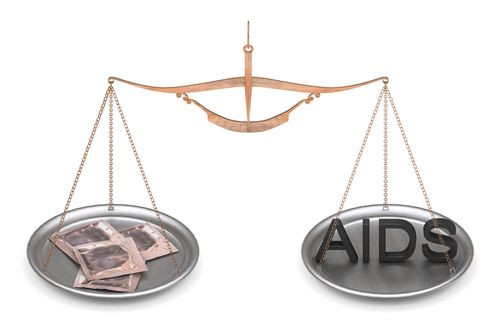Should Failing To Disclose HIV Be A Crime, Even If You Use A Condom And No One Is Infected?

Currently, 33 states have one or more HIV criminal exposure laws that impose penalties on people who know their HIV status yet potentially expose others to infection. A story co-published yesterday by BuzzFeed and ProPublica suggests these laws need to be revisited and provides supporting evidence culled from data analysis of 541 cases in which people were convicted of, or pleaded guilty to, criminal charges for not disclosing that they were HIV-positive. The author, Sergio Hernandez, also significantly highlights the fact that none of the laws in any state require actual transmission to occur for a person to be prosecuted.
Legal Backdrop
In 1990, Congress passed the Ryan White CARE Act, a law that funded HIV/AIDS services. Named after a hemophiliac teenager who was expelled from middle school after contracting human immunodeficiency virus (HIV) from a tainted blood treatment, the bill included a requirement that states pass legislation to safeguard their blood and organ donation networks and demonstrate an ability to prosecute intentional HIV exposure. In 2000, this requirement was deleted when Congress renewed the bill yet most of the criminalization statutes in the states remain on the records. Other states include HIV-related offenses under general communicable disease statutes or general criminal laws.
What is important to understand is the knowledge of the disease and its transmission has evolved dramatically since enactment of the original law. AIDS (acquired immunodeficiency syndrome) is a chronic, potentially life-threatening condition caused by HIV, which damages the immune system and interferes with the body's ability to fight organisms causing disease. AIDS, which is believed to have originated in Africa, was first recognized by the Centers for Disease Control and Prevention in 1981 yet its cause — infection with HIV — was not immediately identified. In its earliest days AIDS was considered a deadly and disfiguring plague of unknown origin and many people feared any form of contact with an infected person might transmit the infection. Now it is understood that AIDS is caused by a sexually transmitted infection, though it can also be spread by contact with infected blood, or from mother to child during pregnancy, childbirth, or breast-feeding.
Despite the fact that it is known now that the disease cannot be spread through spitting or scratching, people with HIV have been sentenced to prison time for such behaviors. Similarly, it is very unusual for someone to transmit the disease by biting another person. Other defendants, including those in the cases analyzed by ProPublica, were also often sentenced to years behind bars even in situations where they had used a condom or took other precautions against infecting their partners. Of 60 cases for which ProPublica found extensive records, just four involved complainants who actually became infected with HIV. Yet many law enforcement officials — as well as many citizens — believe the laws deter people from spreading the virus.
Helping or Hurting?
People living with HIV often support the laws. For instance, a survey conducted in 2010 of HIV-positive people found that 54 percent believed it should be a crime for an HIV-positive person to have condom-protected sexual intercourse with an uninformed partner, while 87 percent believed it should be against the law for an HIV-positive person to have unprotected intercourse with an uninformed partner. The results may seem surprising until one considers that some people living with HIV may be suffering because they themselves were once the uninformed partner.
At the same time, some health officials believe criminal penalties may actually enable the spread of HIV. The CDC estimates that 21 percent of all people who have HIV have not been tested and so don’t know their HIV status. Many people, then, unknowingly spread the infection. Worse, CDC also indicates people who do not know they are HIV-positive are more likely to engage in high risk behaviors. Those who wish to remain HIV negative clearly cannot rely on a partner to disclose what they themselves don’t know. Further, many public health officials believe, according to ProPublica, that criminalization laws impede progress toward reducing the number of people who are HIV positive. If people understand they might be imprisoned for knowingly exposing others to HIV, “their best defense may be ignorance. Such laws, then, provide a powerful disincentive for citizens to get tested and learn if they carry the virus,” writes Hernandez.
Source: Galletly CL, Glasman LR, Pinkerton SD, Difranceisco W. New Jersey's HIV exposure law and the HIV-related attitudes, beliefs, and sexual and seropositive status disclosure behaviors of persons living with HIV. American Journal of Public Health. 2012.
Published by Medicaldaily.com



























